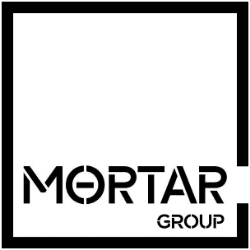
What is the benefit of vertical integration, and why do investment firms put so much focus on it?
Before we get into some detail, the short answer is greater efficiency and cost-effectiveness, as it brings various stages of the investment or development process under one roof. Specifically, for us at Mortar, vertical integration in real estate refers to the integration of various stages of the process, from acquisition to construction, to asset administration and investor management.
This integration leads to several benefits, some of which include:
Increased Control:
By combining the various stages of the development, companies have greater control over the entire process, from the initial planning stage to the final sale or rental of the property. This control allows for better coordination and the ability to make decisions quickly, ensuring that projects are completed on time and within budget.
Improved Efficiency:
Vertical integration also leads to improved efficiency in the property development process. Companies eliminate bottlenecks and streamline operations, which results in cost savings and a reduction in the time needed to complete projects. Additionally, vertical integration can result in a reduction of the number of intermediaries involved in the development process, which reduces the time and cost associated with negotiations and transactions.
Reduced Risk:
By integrating various stages together and under unilateral management, companies can better manage risk. For example, by acquiring land and securing equity financing in-house, companies can mitigate the risk of fluctuations in the market and ensure that projects are completed even in challenging economic conditions. Additionally, vertical integration can provide companies with better insight into the market, which allows them to make informed decisions about the development of properties.
Enhanced Customer Satisfaction:
Vertical integration in real estate also leads to enhanced customer satisfaction. By integrating the various stages of the development process, companies could offer a more comprehensive range of services to customers, from property acquisition and design to construction, marketing, and property management. This level of integration allows companies to offer a seamless customer experience, which leads to higher levels of customer satisfaction and loyalty.
Improved Profitability:
Finally, vertical integration in real estate can result in improved profitability for companies. By eliminating intermediaries, streamlining operations, and reducing risk, companies can reduce costs and increase revenue, which leads to increased profitability. Additionally, vertical integration can also provide companies with greater bargaining power in the market, which can lead to increased revenue from property sales or rentals.
In conclusion, vertical integration in real estate offers a range of benefits to companies, and by integrating the various stages of the property development process, companies can manage projects and offer a more comprehensive range of services to customers, which leads to increased success in the competitive investment market.
– – – – – – –

